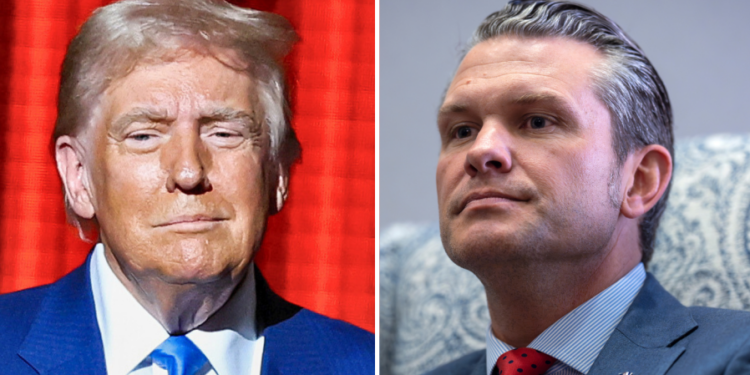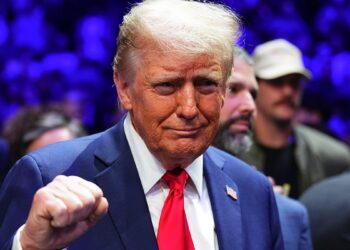
Last week, a damning expose of President-elect Trump’s appointee to run the Pentagon, Pete Hegseth, was published in The New Yorker. Whistleblower reports and accounts by former colleagues reveal a history of gross financial mismanagement, sexual impropriety and repeated intoxication on the job — to the point of being so inebriated he had to be carried out of work events.
Hegseth’s attorney, Tim Parlatore, responded to the story with the usual attempt to discredit the source of the information, the money quote here being: “We’re not going to comment on outlandish claims laundered through The New Yorker by a petty and jealous disgruntled former associate of Mr. Hegseth’s.”
This is by no means a surprising take if you work with whistleblowers, as we have for years. Smearing the messenger is classic crisis public relations. But what is particularly notable is Parlatore’s elision: There wasn’t just one “former associate” bringing forward this information. Hegseth’s alleged bad behavior spanned years, involved wrongdoing as disparate as sexual abuse and financial misconduct, and took place at more than one organization.
This story only reached the world because a number of people came together to put different pieces of the picture together, to give the public a full view of Hegseth’s history — one we may never have known, especially given Trump’s inital apparent unwillingness to subject his appointees to the usual FBI background checks.
Does this feel familiar?
Revisiting the first Trump presidency, it is notable that one of the only things that put a check on Donald Trump were the individuals who came forward, many from inside his own administration. Whistleblower complaints revealed that Trump pressured Ukraine to help him win re-election. Insiders shed crucial light on his administration’s suppression of climate data and the gifting of COVID-19 contracts to cronies. And while Trump’s usual playbook was to attack anyone who spoke out against him, occasionally, he did show himself willing to respond to public outcry — for example, when he scaled back his policy to separate migrant families.
As we enter a second Trump term, protections for individuals who speak up is needed more than ever, and public outcry needs to be louder than ever. Whistleblowers may end up being one of the only means of providing essential checks on the administration, both by exposing what Trump is planning behind closed doors and by creating the wave of awareness and public outrage needed to build pressure to stop him and his cronies in business.
But the idea of speaking up against Trump has always been daunting and is more so now with the president-elect’s avowed promise to punish his enemies.
Look at Miles Taylor, the whistleblower from inside Trump’s first administration who wrote an anonymous op-ed for the New York Times. He has said that whistleblowing about Trump “nearly destroyed my life, from financial and legal troubles to stalkers and death threats.” Trump hasn’t been quiet about his willingness to take things further this time around, deploying even the FBI to go after those who show disloyalty to him.
At the same time, whistleblower protections have never looked shakier. Recent rulings have already begun to suggest just how shaky. On Sept. 30, 2024, Kathryn Kimball Mizelle — the youngest of the lightly qualified judges selected by Trump for lifelong judicial appointments — dismissed a Florida False Claims Act lawsuit, calling the law’s “Qui Tam” provision unconstitutional. Qui Tam, a legal concept that pre-dates the founding of the country, allows whistleblowers to file claims that hold accountable those who defraud the government. Dismantling Qui Tam would make it infinitely easier for companies to defraud the government and chill any whistleblowers who would bring such claims.
The potential dangers to whistleblowers in both government and industry aren’t just theoretical. They are already happening. Recent reporting has revealed that threats and retaliation against government workers escalated in the months before the election, in anticipation of Trump’s return to power. Career civil servants, particularly at the Department of Justice, have reported an uptick in online harassment, doxxing and threats of violence.
With those being the stakes, we need to consider how we can make it easier for the public to get information.
One of the most effective ways to mitigate the risk of coming forward is for insiders to do it together, much as the Hegseth sources did: collective truth-telling in the public interest. Of course, journalists have done this for a long time, but we need to look at ways of bringing people together who don’t know others exist, or who wouldn’t have enough information on their own to bring a full enough picture to a journalist. Building the possibility of information escrows is one means of allowing pieces of information to build a picture of what is going on behind the scenes, even anonymously.
There is strength — and potential anonymity — in numbers. An example is the open letter that former and current employees of OpenAI published to warn the public about the serious risks of artificial intelligence technologies, signed by 13 former and current OpenAI employees. Seven who attached their names no longer work at the company, while six current employees signed on anonymously. This meant that current, up-to-date insider information could be brought to the public’s attention, but it also made it very difficult for the company to figure out whom to retaliate against.
This collectivization enables employees and government workers to speak without blowing up their entire lives and careers (the all-too-familiar path of the whistleblower). The company (or president’s) best tool is a dart aimed squarely at the individual sharing information; it’s much safer to take on a powerful company or government entity when you’re not identified as the bullseye on the dartboard. The same would apply within a Trump administration.
There is no greater expression of freedom of speech than our ability to speak out when we see wrongdoing. The strength of our democracy depends on us protecting those courageous individuals willing to expose wrongdoing, whether in Washington, D.C., or Silicon Valley. If increased whistleblower protections are off the table in a new Trump administration, then we need to find new and innovative ways to protect the insider who has important information that we, the public, need to know.
If we fail to do so, we will have failed to protect the very ideals upon which this nation was founded.
Jennifer Gibson and Rebecca Petras are co-founders of Psst.org, a nonprofit with a mandate to help insiders bring forward public interest information safely.







